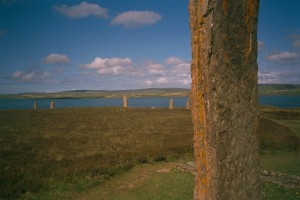
First published in Government Computing, September 2002
Orkney Island Council is the smallest full-service local authority in the UK, a unitary body that governs just 20,000 people on 17 inhabited islands.
It is also a place where they love the internet. A council survey last summer, which gathered responses from over 1,000 households, found that 44% had internet access with another 6% planning to go online by the end of 2002. The national equivalent last summer, according to Oftel, was 39%.
So it may come as a surprise that the council is planning to concentrate on video-conferencing, rather than its web-site, in providing electronic access to social services, housing and health.
Continue reading “Video ring to unite islanders: Orkney Island Council and videoconferencing”
